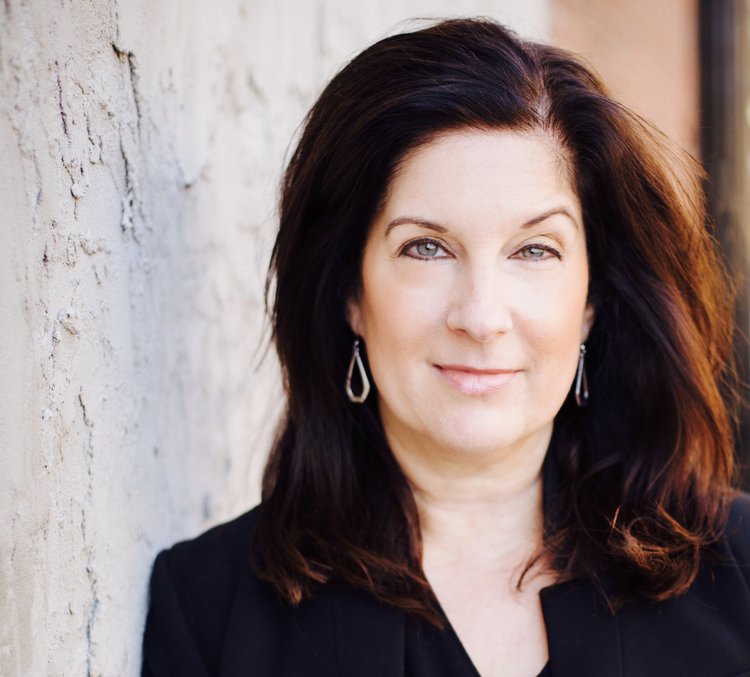
Nina Marie Corona has been presenting a five-week workshop series on addictions at St. Thomas of Villanova Parish throughout the month of November. (Courtesy of Nina Marie Corona)
With U.S. overdose deaths soaring over the past year, a Montgomery County parish is examining the complex nature of addiction and recovery.
Throughout the month of November, St. Thomas of Villanova Parish has been hosting the series “We Thirst: Christian Reflections on Addiction.” Presented by its creator, Nina Marie Corona of the Bethlehem, Pa.-based St. Francis Center for Renewal, the five-week course includes evenings of reflection for people including the afflicted, their families, those who work with them and anyone striving to help those in addiction.
The sessions – which so far have drawn from about 10 to 25 people – are being held both in person at the parish’s Rosemont Chapel location (1229 E. Lancaster Ave in Bryn Mawr) and online.
“It’s an education series that explains all the different facets that happen to people who are addicted,” said Karen Farley, St. Thomas’ business manager and a parishioner.
One of the main points the series highlights is the Catholic and Christian response to addiction, which impairs not only users’ lives but those of all they encounter.
[hotblock]
Each session of the series delves into a particular facet of addiction, including biology (Nov. 2), physiology (Nov. 9) and sociology (Nov. 16).
Corona also underscores a different virtue each week, such as courage, or fortitude, which enables those affected by addiction to confront fear, admit the need for help, break destructive habits and make positive changes in life.
The Book of Joshua tells us to be strong and courageous as God is with us wherever we go, said Corona, noting “we need to practice courage.”
Her holistic approach to the issue derives from addiction’s broad impact on individuals, families and societies.
“We’re all affected in some way,” said Corona.
[tower]
In her talks, she explores addiction as a “family disease” in which the entire system of relationships is thrown out of balance by one member’s affliction. Corona used dominoes to demonstrate that as one falls down, the others get knocked down. Family recovery is important, she said, and each member must do his or her own part in getting help.
“All family members are connected,” said Corona. “Each one must do the work to ‘still’ themselves.”
Moreover, addiction can ensnare an individual regardless of their background, from celebrities to those in homelessness.
Counseling, group counseling, coaching and medication can all help a person in addiction, and relationships – with God and with others – are essential, said Corona.
During recovery, people must step up and take on new roles, she said. Children may have to accept adult responsibilities such as taking care of younger siblings.
Forgiveness and perspective are also key, she said, adding it is vital to remember the very real and hurtful behavior of those in addiction is often not intentional, but rather a consequence of the disease.
Corona referenced Christ’s parable of the prodigal son (Lk 15:11-32), as she herself could relate to the situation from experience. The father’s younger son asked for his share of the family estate. The father granted this wish and so the son took the money his father gave him, went off to another country and spent that money. As famine struck, the boy realized he sinned against heaven as well as his father. Returning home, he told his father he should be treated like his father’s servants. However, the father was so happy that the son had returned celebrate with a feast, for he who was lost was found.
“The parable teaches us love and compassion,” she said, and to provide those listening time to reflect, she played a recording of “Prodigal Song” by Laura Story.
Corona noted the need to distinguish several mindsets – governed primarily by reason or emotion — along the “journey to recovery,” with the goal being to develop a “wise mind” that is a combination of reason and emotion working together.
Ultimately, she said, “recovery is about becoming the kind of person who can engage in healthy relationships.”
Many resources are available for that task, including the National Institutes of Health’s HEAL Initiative and the American Medical Association (AMA).
Corona suggested viewing “The Anonymous People,” a 2013 documentary directed by Greg Williams that seeks to transform addiction’s problems into solutions.
“We ask that you give us the courage to do the next right thing,” prayed Corona at the end of a recent session.
The series resumes with a Nov. 23 session on spirituality.
Additionally, St. Thomas of Villanova Parish has a Mercy Ministry that aids families dealing with addiction and its effects. Those who call can request specific types of help, and the organization will assist in finding resources.
“We’re trying to see what those of the parish would like to see happen,” said Farley.
For more information on the remainder of the “We Thirst” series at St. Thomas of Villanova Parish, contact Karen Farley at bizmgr@stvparish.org or 610.525.4801 x202.
PREVIOUS: Rescued from rubble, Mary statue now reigns at local family’s mountain home
NEXT: Pro-life advocates ‘stand up’ to ‘save generations’



Share this story